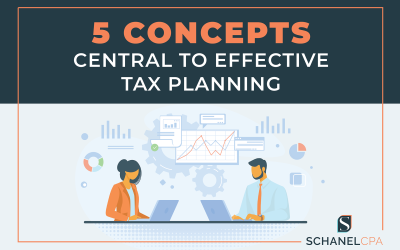
In the event of an IRS audit, you need to provide documentation for your deductible expenses. Some people keep the receipts, while others keep credit card statements. So what exactly do you need to keep?
Keep the receipt and the credit card statement
In general, for everything you want to deduct, you should keep the receipt AND the credit card or bank statement. Here’s why.
To support a deduction, you will need to show what you purchased, when it was purchased, where or from whom it was purchased, and how much was spent. In addition, you will probably need to provide documentation that it was you (or your business) that made the purchase.
Just saving the receipt may not show who made the purchase. And just saving the credit card or bank statement does not show what was purchased. For example, was that $35.67 you spent at Wal Mart for office supplies for your business, or was it for groceries? Therefore, your safest bet is to keep both.
The good news is that the IRS does allow digitized receipts. And given smartphones and easily accessible file hosting services such as Dropbox, this solution is more practical than ever.
Now that you know to keep both the credit card statements and the receipts here’s a more detailed look at the various types of expenses for which you will need to document.
Personal Expenses
Medical receipts: Keep proof of any prescriptions, dental and medical bills paid, plus insurance premiums paid out of pocket. Physical therapy and some alternative therapies are also deductible. Eyeglasses, contact lenses, hearing aids, and durable medical equipment are deductible, too. Over-the-counter medications are only deductible if you have a prescription from your doctor.
Charitable donations: Keep copies of checks or bank statements that show the name of the organization, the date and amount plus any receipts you receive from the organization, including documentation of donations of clothing, household goods or other items.
Expenses for your home: Keep proof of the purchase price of your home plus any improvements or major repairs. Keep evidence of any property taxes you pay separately from your mortgage payments.
Car registration: In Florida, the tax portion of your vehicle registration is deductible, so keep a copy of that.
Childcare: Keep track of anything you spend for a babysitter, daycare, day camp, after-school program, or other care providers that allowed you and your spouse to work or attend school full time.
Business Expenses
Generally, anything you pay for in the course of running your business is deductible. This includes supplies, equipment, items you buy for resale, and raw materials you use to make items for sale, as well as services provided by other professionals, such as accountants and lawyers. You can also deduct the cost of any educational or training programs that help you with your business. Keep copies of any invoices from vendors and contractors, as they may not provide you a receipt.
Meals: The best documentation is the itemized bill. The itemized bill provides a general idea of how many people were present. It’s also a good idea to make a note on the bill with the names of the people and the purpose of the meal.
Travel expenses: Airfare and transportation costs, taxis and rideshare services, hotel bills and meals for business-related trips are deductible. If you charge meals to your hotel room, be sure to keep the itemized bill. You’ll need to record the meals separately in your records.
Home office expenses: If you have a home office, and are claiming actual expenses, you may need to keep copies of your utility bills, maintenance and repair expenses, insurance bills, and any other expenses for maintaining and owning or renting your home.
Vehicle expenses: At the very least, track your mileage, either in a log book or with an app on your phone. Track your business, medical, and charitable miles separately. If you’re deducting actual expenses, then keep the receipts for the purchase of your car, gas, oil changes, maintenance and repairs, insurance, and registration. Parking and toll fees are also deductible, so keep those as well.
Saving all those receipts and financial records may be a hassle, but being able to defend your deductions in the event of an audit is well worth it.
Contact our office with questions about what kinds of expenses you can deduct on your taxes. We are always here to help.
Schanel & Associates is a CPA firm specializing in accounting, tax, business valuation and litigation support serving Palm Beach, Martin and St. Lucie Counties and beyond since 1993. Our CPAs and accounting professionals work with individuals, businesses, estates and trusts to provide everything you need under one roof. For more information, contact us today at 561-624-2118.
Todd Schanel has been a principal at Schanel & Associates since 2004, where he specializes in financial planning, tax planning and consulting services. He also serves as Founding Principal and Director of Investment Advisory Services at Core Wealth Management, our sister company, where he leads an accomplished professional team offering independent and objective financial advice to help clients achieve their financial goals. Todd has been a CFA Charterholder since 2005, and in 2007 he earned his Certified Financial Planner® designation and became a licensed CPA. In 2015, he earned the Certified Valuation Analyst (CVA) designation.



